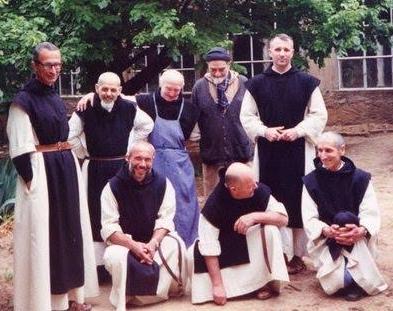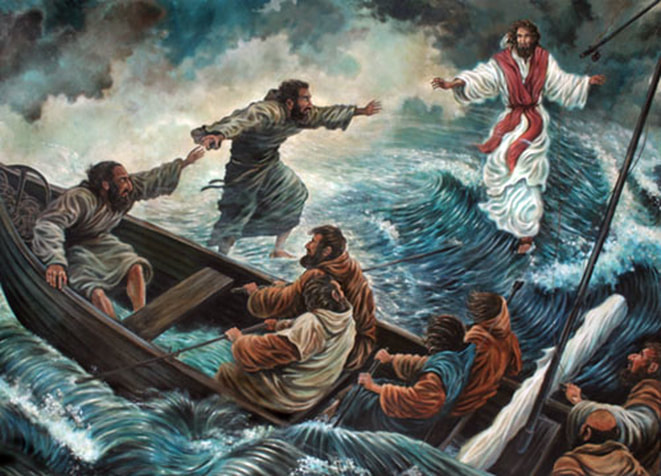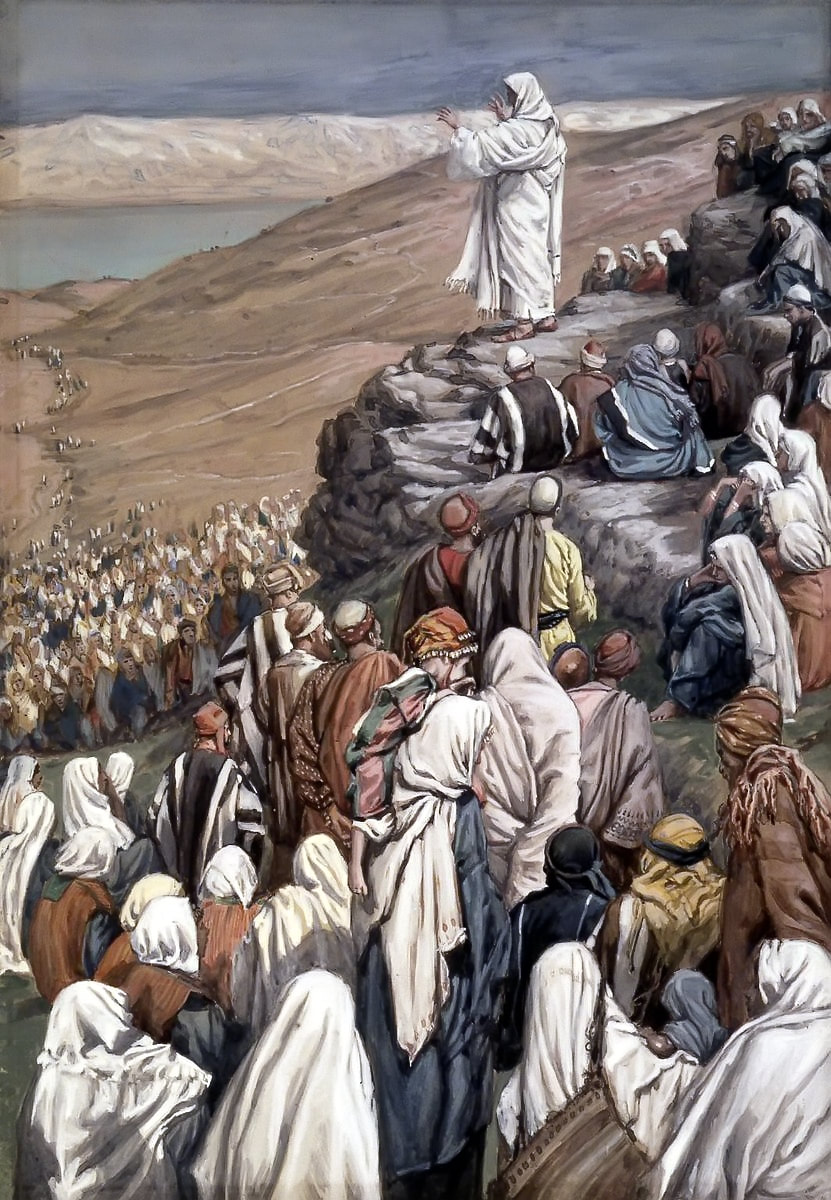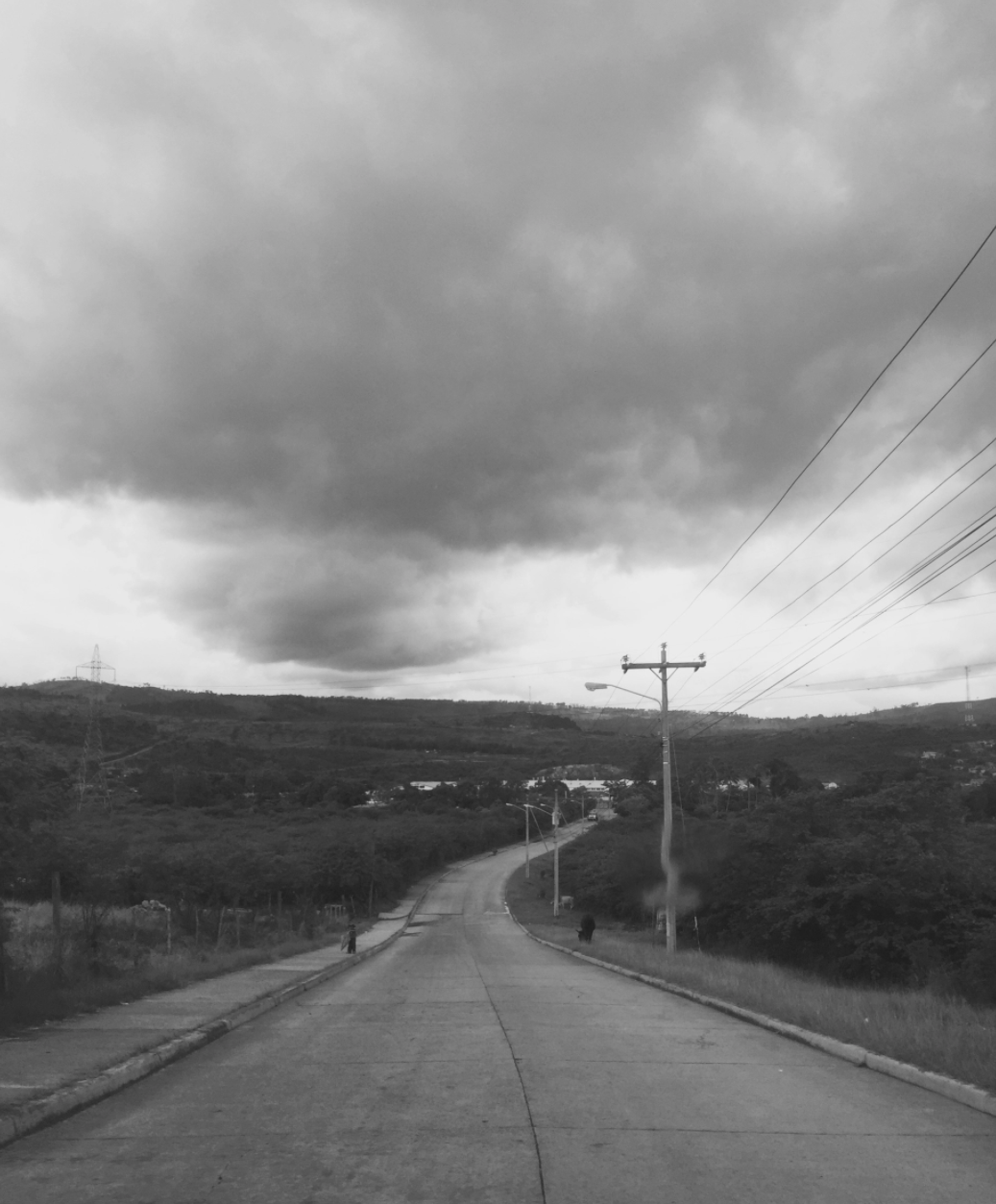|
"The joy of friendship is found in direct connection; and Jesus asks for this every day, that He may have time to influence me, to tell me of Himself, to teach me, to breathe His Spirit unto me, to give me new life and joy and strength. And remember, direct connection with Jesus does not mean half-an-hour or an hour in your closet. A man may study his Bible or his commentary carefully; he may look up all the parallel passages in the chapter; when he comes out of his closet he may be able to tell you all about it, and yet he has never met Jesus that morning at all. You have prayed for five or ten minutes, and you have never met Jesus. And so we must remember that though the Bible is most precious, and the reading of it most blessed and needful; yet prayer and Bible reading are not fellowship with Jesus. What we need every morning is to meet Jesus, and to say, 'Lord, here is the day again, and I am just as weak in myself as ever I was; do Thou come and feed me this morning with Thyself and speak to my soul.' Oh, friends, it is not your faith that will keep you standing, but it is a living Jesus, met every day in fellowship and worship and love." Andrew Murray, Jesus Himself
2 Comments
"Now faith means putting our full confidence in the things we hope for, it means being certain of things we cannot see..." Hebrews 11:1
And thus begins the beginning of the most famous "faith chapter" in all the 1,189 chapters in the whole Bible, including, if you read on, practical examples from real human lives. But first - you know me! - I want to take issue with the way, most of the time, we've heard and been taught and internalized the meaning of this very well-known opening verse. Take a read-through again in the Phillips translation and, then, in the NIV:
Yet the way it seems we've heard and understood this verse is at a position of remove, like "faith" is some remote action of shooting hopes out into the unknown darkness. The actual Greek wording would beg to differ, though: consider it: “Faith is the foundation of the things hoped-for, the proof of things not presently seen.” I think, oftentimes, we think of "faith" as a means to get somewhere - to peace, to calm, to Heaven - when, in fact, to believe means you've already arrived. Faith is the Heavenly we can hold onto; it's the economy of Life itself; as the King James' captures it so perfectly, it is "the substance" - the tangible, touchable - of what we claim to believe. For us to first just sit in a room and truly believe what we say we believe about Jesus is the most powerful human activity available to us. All true Christian doings can only proceed from there. What - and how - do we really believe? In studying through Hebrews this fall, and in seeing how fully Jesus represents the dividing-line between the Old and New Covenants, I was struck this week by how the calling of Matthew - referenced in Matthew, Mark and Luke - is such a perfect picture of Jesus' way of showing the difference. Consider the text with some "Old Covenant reminders" thrown in for context:
On a certain day, Jesus went out and looked straight at a tax-collector called Matthew, as he sat at his office desk. The Old would say “This man is a despicable sinner, unworthy of any fellowship with the living Embodiment of God.” “Follow me,” Jesus said to him. The Old would then say, “Well, now this man must go through elaborate rituals of purification, sacrifice and external proofs of the change of heart in order to even have a chance of following God.” And Matthew got to his feet at once, left everything behind and followed him. Then Matthew gave a big reception for Jesus in his own house… And the Old would say, “Okay, but let only the perfect, pure and utterly righteous come to this party; let only the exactingly religious sit at table with God’s Son.” ...and there was a great crowd of tax-collectors and other disreputable people at table with them. For there were many such people among his followers. The Old would say, “Well, at least these disreputable people, tax collectors and riffraff are now going to get an earful from their God, regarding their sin and lawlessness to this point...” But it was: The Pharisees and their companions, the scribes, [who] kept muttering indignantly about this to Jesus’ disciples which, yes, according to the Old, was the proper way of doing business: at second-hand, away from God, and they said, “Why do you have your meals with tax-collectors and sinners?” To which the Old would say, “Precisely! What sort of person associates with sinners?” But Jesus heard this and replied, “It is not the fit and flourishing who need the doctor, but those who are ill! Suppose you go away and learn what this means: ‘I desire mercy and not sacrifice.’ The Old would now be shaking in its boots as He continues: In any case I did not come to invite the ‘righteous’ but the ‘sinners.’” Which is a verbal invalidation of everything that the Old has ever stood for. The constant question for our hearts: Is this the Jesus we're following? “It is a tremendous thing, the economy of the Holy Ghost! When the Spirit of God finds a soul in which He can work, He uses that soul for any number of purposes: opens out before its eyes a hundred new directions, multiplying its work and its opportunities for the apostolate almost beyond belief and certainly far beyond the ordinary strength of a human being.” Thomas Merton, The Seven Storey Mountain
"Let us think of one another and how we can encourage each other to love and do good deeds. And let us not hold aloof from our church meetings, as some do. Let us do all we can to help one another’s faith, and this the more earnestly as we see the final day drawing ever nearer." Hebrews 10:24,25
These two verses are an often-used series of admonitions to keep us serious about our church-attendance, but I wonder if we've ever really realized what kind of "church" is being described here. In the original Greek, let's look at the verbs and nouns used to describe how we're meant to be approaching our shared experience of the Body:
But here's the secret: Millennials aren't losing interest in church because it asks or shows or costs too much; they are losing interest because it asks and shows and costs too little. My observation is that the Christian Millennials we know want it to cost more, to cost them everything. They want to "observe" and study each other, to "provoke" each other's belief, to "gather together" to feast upon Jesus, to call each other as expert "witnesses" of the real thing, "so much very, exceedingly." Are you and I ready to be equal to that sort of Church for them? When we consider the lives of the Early Church, might we not call them "mystical realists" - people making the mysteries of God utterly real, and their realities a true experience of the mysteries of the living Christ?
If so, I'd like to walk in that lifestyle today! How about you? “Only when you descend into yourself and encounter the Other, do you then experience goodness as the ultimate reality – united and living – in Him and through you.” Dag Hammarskjöld
2nd Secretary-General, U.N. Markings
A few years ago, I read a beautiful book about the life and death of a group of monks in Algeria who were killed because of the steadfastness of their ministry and belief. To give some context to the quotation I'll share, I wanted to give you a little more about their lives: here's a short write-up of their story from the website Patheos.com - "During the tumult of the [1990's] Algerian civil war, foreigners increasingly became targets of the various insurgent groups. The monks of Tibhirine, all French nationals. recognized their vulnerability not only as Europeans but also as Catholics. Military and government officials began to pressure the monks to leave the country, for their own safety. But the monks felt matters were not so simple. They provided free medical care to the villagers of Tibhirine, and participated in the local economy; for them to leave, abandoning the village which was itself vulnerable to the violence of the war, struck the monks as a poor witness to their vocation not only as monks but as Christians. Choosing the demand of faith over the impulse to self-protect, the brothers unanimously chose to remain in Algeria, even though this led, ultimately, to six of the eight monks (along with a seventh brother visiting from a Moroccan monastery) being kidnapped and then killed." From John W. Kiser's The Monks of Tibhrine - “They, and others like them, were living manifestations of the good news of the Gospels: a life freely given in the spirit of love is never a life lost, but one found again in Him who is Life…” Oh, how I love that thought! To lose our lives into the One who is life is no loss at all; for in Him, even in death, Life is always found. The Monks of Tibhirine, not long before their kidnapping and death
For now Christ has come among us, the High Priest of the good things which were to come, and has passed through a greater and more perfect tent which no human hand has made (for it was no part of this world of ours). It was not with goats’ or calves’ blood but with his own blood that he entered once and for all into the Holy of Holies, having won for us men eternal reconciliation with God. And if the blood of bulls and goats and the ashes of a burnt heifer were, when sprinkled on the unholy, sufficient to make the body pure, then how much more will the blood of Christ himself, who in his eternal spirit offered himself to God as the perfect sacrifice, purify your souls from the deeds of death, that you may serve the living God! (Hebrews 9:11-14)
In the midst of the overwhelming wonder and mystery of these verses, let us not lose sight of the declarations - the realities of our new reality - that are so beautifully offered up here: Now, because of the blood of Jesus, you may serve the living God; now, because of the blood of Jesus, your soul is forever purified; now, because of the blood of Jesus, the Body has been made pure; now, because of the blood of Jesus, we men and women are eternally reconciled with God; now, because of the blood of Jesus - and for the first time mentioned in Hebrews - Jesus has gone through the veil, our Heavenly High Priest, and has entered the Holy of Holies for us, and yet He beckons us, to come in through that forever-torn curtain and to be with Him there forever. The perfect simultaneity between "It is finished" and the temple's curtain tearing is no perfect coincidence. It is the perfect invitation: Come in... now and forever! The ultimate proof of the blood of the Cross is your personal intimacy - NOW - with Jesus of Nazareth. How you personally come to know Him each day now is the world's best proof for how strong His blood was then. So, "Come closer," He is saying, "come in today!" Will we? There is no one better to lead us into the fullness of the life of Abiding, no one better to teach us the way of the Holy Spirit, than the very One who first taught of that life, and sent us that Other, for the purpose of His Kingdom's arrival upon this earth.
Truly, daily, our only job is to ask Jesus for the forward steps that that day solely holds. And then take them. "The Lord said first to Elijah, 'Go, HIDE THYSELF' then, 'Go, SHOW THYSELF.' He who does not first hide himself in the secret place to be alone with God, is unfit to show himself in the public place to move among men. [George] Müller afterward used to say to brethren who had 'too much to do' to spend proper time with God, that four hours of work for which one hour of prayer prepares, is better than five hours of work with the praying left out; that our service to our Master is more acceptable and our mission to man more profitable, when saturated with the moisture of God's blessing - the dew of the Spirit.” Arthur Pierson, George Müller of Bristol
"Under the old arrangement the outer tent [of the Tabernacle] was habitually used by the priests in the regular discharge of their religious duties. But the inner tent was entered once a year only, by the High Priest, alone, bearing a sacrifice of shed blood to be offered for his own sins and those of the people. By these things the Holy Spirit means us to understand that the way to the Holy of Holies was not yet open, that is, so long as the first tent and all that it stands for still exist. For in this outer tent we see a picture of the present time, in which both gifts and sacrifices are offered and yet are incapable of cleansing the soul of the worshipper. The ceremonies are concerned with food and drink, various washings and rules for bodily conduct, and were only intended to be valid until the time when Christ should establish the truth." Hebrews 9:6-10
And as good as that last sentence sounds, when compared to the stringencies of the past, the actual Greek wording is even better: "these consisted only of ordinances of the flesh - foods and drinks and various washings - until the time was imposed of restoration, of the making straight..." Do you remember, back in John 1, when the religious leaders asked John the Baptist exactly who he was? They said: "Who are you? We want to give an answer to the people who sent us. What would you call yourself?" [And John replied:] “I am ‘The voice of one crying in the wilderness: Make straight the way of the Lord…’" How wonderful that John's self-perception, his calling, was to "make straight" the Way of the One whose Way would "make straight" the way for all of us! That should be the business, the self-perception, the calling of everyone who calls on the name Jesus: that our lives would make straight the Way, so that all may walk it! "Ransomed men need no longer pause in fear to enter the Holy of Holies. God wills that we should push on into His Presence and live our whole life there. This is to be known to us in conscious experience. It is more than a doctrine to be held, it is a life to be enjoyed every moment of every day... The world is perishing for lack of the knowledge of God and the Church is famishing for want of His Presence. The instant cure of most of our religious ills would be to enter the Presence in spiritual experience, to become suddenly aware that we are in God and that God is in us. This would lift us out of our pitiful narrowness and cause our hearts to be enlarged." A.W. Tozer, The Pursuit of God
"For this is the covenant that I will make with the house of Israel after those days, declares the Lord: I will put my law within them, and I will write it on their hearts. And I will be their God, and they shall be my people. And no longer shall each one teach his neighbor and each his brother, saying, ‘Know the Lord,’ for they shall all know me, from the least of them to the greatest, declares the Lord. For I will forgive their iniquity, and I will remember their sin no more.” Jeremiah 31:33,34
All of you reading this certainly know my passion for the Early Church, for learning the ins and outs of what made their experience of Jesus so explosive and so world-changing. And I think what keeps me up at night about it is that nothing - not Jesus' life, not His death, not His resurrection, not His ascension, not the work of the Holy Spirit - none of it has changed from back then and yet, on our end, we so often think, "Hmmm, doesn't it all seem really different back then?" No! Again, nothing has changed! "Jesus is the same yesterday, today and forever." If we want to see the Book of Acts alive in our day, this prophetic passage from Jeremiah 31 is like a checklist for the fullness of the experience:
Is that the sense of the Kingdom of Heaven as it pours through us? Through you? "The form of Jesus Christ takes form in man. Man does not take on an independent form of his own, but what gives him form and what maintains him in the new form is always solely the form of Jesus Christ Himself. It is therefore not a vain imitation or repetition of Christ’s form but Christ’s form itself which takes form in man... So the Church is not a religious community of worshippers of Christ but is Christ Himself, who has taken form among men..." "What matters in the Church is not religion but the form of Christ, and its taking form amidst a band of men. If we allow ourselves to lose sight of this, even for an instant, we inevitably relapse into that program-planning for the ethical or religious shaping of the world, which was where we set out from." Dietrich Bonhoeffer, Ethics
Hebrews 8:3 - "Every High Priest is appointed to offer gifts and make sacrifices. It follows, therefore, that in these [heavenly] holy places Jesus has something that he is offering..."
...which is a logic that made perfect sense to the Hebrew readers of this epistle, but, let's be honest, you and I are not Hebrew readers and, I bet, most of us don't know all the forms and functions of the historical High Priests of Israel. Beyond, say, the Day of Atonement and the regularly-offered sin offerings, do you know what a High Priest's main duties and responsibilities were? Because, if they're a representation of what Jesus is now perfectly up to on our behalf, I'd sure like to know what those duties were and are... Well, in doing some research this week, I think I found the full list of all that they did. And wow! do they delight my heart in what Jesus is up to for me! Here we go... I. The High Priest conducted the service on the Day of Atonement and entered the Holy of Holies (Leviticus 16 & Exodus 30) – which, as it pertains to Jesus, I'll leave for further thoughts from Hebrews 9 & 10 - there's just too much for right now! II. The High Priest offered continual sin offerings not only for the sins of the whole congregation, but also for himself (Leviticus 4) – which, with Jesus, was unnecessary: He Himself was perfect; and His one perfect offering – Himself! – covers all our sin for all time, end of story. III. The High Priest was the mediator between God and the people (Numbers 16:20-22) – wherein, as Hebrews 7 said of Jesus, “he is always living to intercede on our behalf” – in fact, He has probably turned to the Father half a dozen times over the last few minutes to explain you and me – and our faults – to Him! IV. The High Priest was charged with the responsibility of pronouncing blessings over the people (Numbers 6:22-27) – which, with Jesus, would seem to be one of His highest and favorite works toward us, as He is Himself the best and greatest Blessing – a living alive Blessing! – that mankind has ever received. V. The people could go to the High Priest in order to know the will of God, (ie. the Urim & Thummim) (Moses, Numbers 27:21) – which Jesus now reveals to us – anytime we ask! – by the indwelling of the Holy Spirit (Acts 2) and by His bestowal of the “thoughts of Christ” (1 Corinthians 2) within our minds. VI. The High Priest oversaw the responsibilities of all the other priests (Jehoshaphat, 2 Chronicles 19:11) – which, since we are now the new “royal priesthood” (1 Peter 2) for the Kingdom of Heaven, means that we are directly under His perfect, ever-helpful oversight. VII. The High Priest offered a meal-offering every morning and evening for himself and the whole body of the priesthood (Leviticus 6) – of which, perhaps, Jesus was thinking when He said, “Give us this day our daily bread” (Matthew 6) and then “Do not be anxious for tomorrow, for tomorrow will take care of itself” (Matthew 6), ie. He will take care of tomorrow! VIII. The High Priest kept guard over the sanctuary (Numbers 18) – and Jesus’ "sanctuary" is now both the Throneroom of Heaven and your inner life: It is His work within you that matters most toward your experience of being made new. IX. And – (and how good is this?!) - when a High Priest died, all those in the cities of refuge were granted freedom (Numbers 35:28) – and it is by Jesus’ death that, once and for all time, we WERE and ARE and FOREVERMORE SHALL BE free! I think this is just a beginning of the flavor of the activities and blessings and offerings that Jesus is engaged with - on our behalf - in the presence of the Father right now, today. And isn't that all pretty wonderful? Here's a post that I just love from my friend, Cindy, at cindyhaughey.com:
So beautifully simple and so spurring! Thank you, Cindy, for your writings and thoughtfulness and obedience around the person of Jesus.
"Then the angel showed me a river of the water of life, clear as crystal, coming from the throne of God and of the Lamb..." Revelation 22:1
"There is a river whose streams make glad the city of God, the holy place where the Most High dwells." Psalm 46:4 "He who believes in Me, as the Scripture said, ‘From his innermost being will flow rivers of living water.’” John 7:38 What a wonderful joy to know that we are branches of the great River - "streams who make glad the city of God" - as we abide in Him, find ourselves overflowing with Him, and then pour forth His overwhelming goodness to the world. Let us never dam the tide or muddy the heavenly. Let us believe, find life for ourselves, and then flow onward. “What Christ himself claimed was to reveal the nature and character of God. So that if we accept his claim, however immense our conception of God may be, the clue to his nature and purpose will always be found in Christ. In other words, we look out upon that immense mystery which we call 'God' through the opening which Christ has made in our darkness.” J.B. Phillips, Good News
"Now to sum up — we have an ideal High Priest such as has been described above. He has taken his seat on the right hand of the heavenly majesty. He is the minister of the sanctuary and of the real tabernacle — that is the one God has set up and not man." Hebrews 8:1,2
Right now, even as you're arranging your attentions to focus on Jesus via these words, He is there, sitting at the right hand of the Father, minister of the sanctuary and of the real tabernacle, and He is totally and intently focused on you. He is ever at work. And yet He is steadfast, seated, in firm control. So, following the opening words of this chapter, let us "sum up" - and be reminded of - all that has been described of our High Priest to this point in Hebrews. To do that, I've gone back and collated every single High Priestly description from Hebrews 1-7, and then shifted them from the third person to the second to make them all the more personal. If you have the time today, let these act as a prayer from your heart to His... Jesus, it was imperative that you should be made like us in nature, since you were to become a High Priest both compassionate and faithful in the things of God, and at the same time able to make atonement for my – and for our – sins. For by virtue of your own suffering under temptation, you are now able to help us who are exposed to temptation… We meditate on you, the messenger and High Priest of the faith we hold, Lord Jesus. We see you as faithful to the charge your Father gave you… Jesus, seeing that we have a great High Priest who entered the inmost Heaven – you! the Son of God! – help us hold firmly to our faith. For you are not some superhuman High Priest to whom are weaknesses are unintelligible – you yourself have shared fully in all our experience of temptation, except that you never sinned. We will therefore approach your throne of grace with fullest confidence, that we may receive – from you, Jesus! – mercy for our failures and grace to help in the hour of need… Jesus, you did not choose for yourself the glory of being High Priest, but you were honored by the One who said: ‘You are my Son, today I have begotten you’… When you had been proved the perfect Son by your death for us on the Cross, you became the source of eternal salvation to all who desire to obey you, being now recognized by your Father Himself as High Priest ‘after the order of Melchizedek…’ Jesus, by two utterly immutable things, the word of God and the oath of God, who cannot lie, we who are refugees from this dying world now have a source of strength, and can grasp the hope that you are holding out to us. This hope we hold as the utterly reliable anchor for our souls, fixed in the very certainty of your Father in Heaven, where you, Jesus, have already entered on our behalf, having become, as we have learned, ‘High Priest for ever…’ Jesus, you who are described as our High Priest belonged to another tribe of Israel, no member of which had ever attended the altar! It is a matter of history that you were a descendant of Judah… You derived your priesthood not by virtue of a command imposed from outside, but from the power of indestructible life within… Quite plainly, Jesus, there is a definite cancellation of the previous commandment because of its ineffectiveness and uselessness – the Law was incapable of bringing anyone to real maturity – followed by the introduction of your better hope, through which we approach your Father. Yes, you mean a ‘better’ hope for us, Jesus, because you have become our priest by the oath of God… Jesus, because you live forever, you possess a priesthood that needs no successor. This means that you can save fully and completely we who approach your Father through you, for you are always living to intercede on our behalf. You are the High Priest we need. A Man who is holy, faultless, unstained, beyond the very reach of sin and lifted to the very Heavens. There is no need for you, like the High Priests of the past, to offer up sacrifice, first for your own sins and then for the people’s. You made one sacrifice, once for all, when you offered up yourself… The word of the oath, which came after the Law, makes for High Priest you Jesus, the Son, who is perfect forever! What if we lived a whole day being inconspicuous in everything except the Way of Jesus?
“A Christian is a person who confesses that, amidst the manifold and confusing voices heard in the world, there is one Voice which supremely wins his full assent, uniting all his powers, intellectual and emotional, into a single pattern of self-giving. That Voice is Jesus Christ. A Christian not only believes that He was; he believes in Him with all his heart and strength and mind. Christ appears to the Christian as the one stable point or fulcrum in all the relativities of history. Once the Christian has made this primary commitment he still has perplexities, but he begins to know the joy of being used for a mighty purpose, by which his little life is dignified.” Elton Trueblood, The Company of the Committed
|
Themes
All
Archives
July 2024
|







 RSS Feed
RSS Feed
